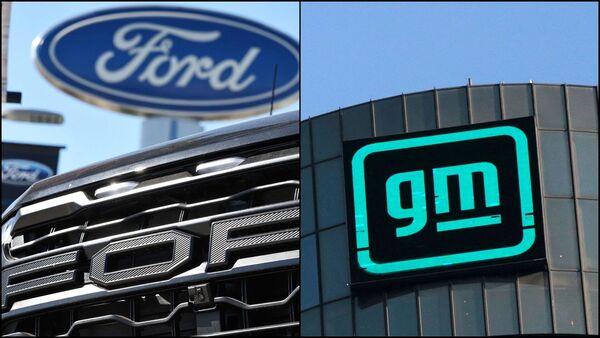In a significant move to address financial challenges and declining demand, Ford Motor Company has announced plans to lay off 4,800 employees across Germany and the United Kingdom. This workforce reduction, set to impact 14% of Ford’s European workforce, is part of the company’s ongoing struggle to adapt to the shifting dynamics of the passenger vehicle market and the increasing pressure to transition to electric vehicles (EVs).
Struggles in the EV Market and Workforce Reduction
Ford’s recent layoffs are primarily driven by weaker-than-anticipated demand for EVs and rising operational costs. The company plans to implement these cuts gradually, with the majority of reductions occurring by 2027. Of the total layoffs, 2,900 jobs will be cut in Germany and 800 in the United Kingdom.
The automaker cited poor sales performance of key EV models like the Ford Explorer and Ford Capri as a contributing factor. Production of these models at Ford’s Cologne plant in Germany is set to be reduced, reflecting the broader challenges the company faces in the European market.

Mounting Losses and Competitive Challenges
Ford has described the transition to electric vehicles as “highly disruptive,” citing a combination of declining sales, regulatory hurdles, and competition from Chinese automakers as key issues. Through September 2024, Ford’s European sales dropped by 17.9%, a significantly steeper decline than the industry-wide reduction of 6.1%.
The automaker has also pointed to the lack of sufficient government support in key markets like Germany as a major impediment. In a letter to the German government, Ford CFO John Lawler highlighted the absence of clear policies to promote e-mobility, including inadequate public investment in charging infrastructure and limited consumer incentives for EV adoption.
Berlin’s decision to end EV subsidies in December 2023 further compounded the situation, with EV sales in Germany plummeting by 28.6% in the first nine months of 2024.
Ford’s Financial Performance and Previous Layoffs
This latest workforce reduction follows another major layoff announced last year, when Ford eliminated 3,800 jobs across Europe. The company has been grappling with mounting losses, particularly in its EV segment.
In the quarter ending September 30, Ford reported a net loss of ₹495 crore, a substantial increase from ₹324 crore in the previous quarter. Peter Godsell, Ford Europe’s Vice President, acknowledged the challenges, stating, “Weaker demand for electric vehicles than we had previously forecast and continuing operational cost challenges necessitate decisive action to restructure our business.”
The ongoing layoffs are expected to help Ford streamline operations and improve margins, as the automaker seeks to regain profitability in an increasingly competitive market.

Calls for Government Support in EV Transition
Amid its struggles, Ford has been vocal about the need for stronger government policies to facilitate the EV transition. The company has urged the German government to reintroduce incentives for EV buyers and invest in building a robust charging infrastructure to support increased adoption.
Ford is not alone in its plea. The broader automotive industry has also expressed concerns over the challenges of meeting stringent CO2 compliance targets without adequate government support. Several industry players have echoed Ford’s call for greater flexibility in emissions regulations and enhanced financial incentives for consumers.
Impact on Ford’s Market Position and Outlook
Ford’s struggles in Europe underscore the difficulties legacy automakers face in navigating the transition to electric mobility. Despite being a market leader in the EV segment, the company’s declining market share—dropping to 33% in the July-September quarter from 49% in the previous quarter—highlights the urgency of addressing these challenges.
The layoffs, while aimed at cost optimization, also reflect the broader pressures on automakers to balance profitability with the capital-intensive shift to EVs. As competition intensifies and consumer demand fluctuates, Ford’s ability to adapt its business model and secure government support will be critical to its long-term success.
As the automaker navigates these turbulent times, its ability to address operational inefficiencies, strengthen its EV offerings, and align with consumer expectations will play a pivotal role in shaping its future in the global market.

